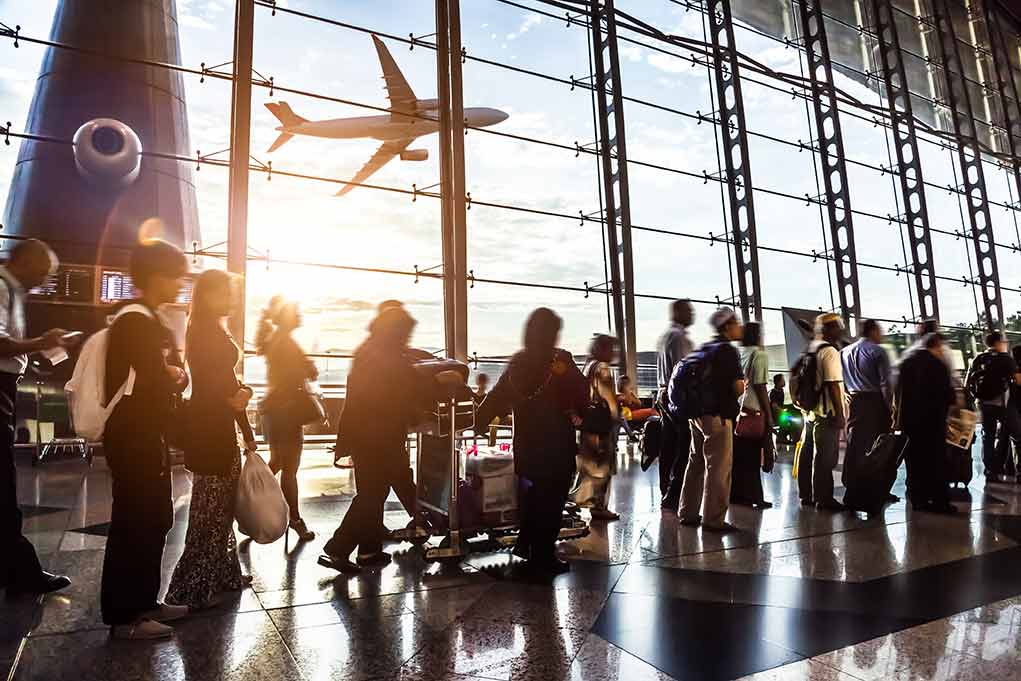
Air traffic controller shortages have reached critical levels following a decade of diversity-focused hiring policies that critics claim prioritized racial demographics over qualification standards, potentially threatening passenger safety across America’s skies.
Top Takeaways
- In 2014, the FAA replaced its merit-based air traffic controller selection process with a “Biographical Questionnaire” designed to achieve racial hiring goals
- Critics argue this policy shift has contributed to dangerous controller shortages nationwide, increased workload fatigue, and potentially compromised safety
- A lawsuit challenging these practices as civil rights violations has been ongoing since 2015, with the government withholding over 14,000 related documents
- Recent air traffic control system failures at Newark Airport have renewed scrutiny of staffing and equipment issues
- New Transportation Secretary Sean Duffy has pledged to remove DEI practices from FAA hiring procedures
The Shift From Merit-Based Hiring
In 2014, under the Obama administration, the Federal Aviation Administration implemented a significant change in how it selected air traffic controllers. The agency scrapped its traditional testing system that emphasized aptitude for the complex job in favor of a new “Biographical Questionnaire.” According to critics, this change was deliberately engineered to achieve specific demographic outcomes rather than identify the most qualified candidates for these critical safety positions.
The new selection criteria allegedly reduced the percentage of Caucasian candidates advancing in the hiring process. The changes drew legal challenges, with a lawsuit filed in 2015 claiming these practices violated federal civil rights laws by using race as a determining factor in federal employment decisions. This lawsuit remains unresolved nearly a decade later, with federal authorities reportedly withholding over 14,000 documents related to the FAA’s hiring practices despite Freedom of Information Act requests.
Biden and Buttigieg celebrated their infrastructure bill. 1.2 TRILLION dollars. The largest infrastructure package known to man.
They claimed it was going to change America.
They spent less than 1 percent of the money on fixing our air traffic control system.
They ignored… pic.twitter.com/FWc2KCpKAr
— Secretary Sean Duffy (@SecDuffy) May 6, 2025
Ongoing Controller Shortages and Safety Concerns
Industry experts point to these hiring policy changes as a significant factor in the current shortage of qualified air traffic controllers across the country. The staffing deficiencies have reportedly increased workloads, contributing to stress and fatigue among the existing controller workforce. These conditions have raised serious concerns about the overall safety of the national airspace system, as controllers must maintain constant vigilance to ensure the safe movement of thousands of aircraft daily.
Recent equipment and staffing issues at Newark Liberty International Airport have brought renewed attention to these concerns. Multiple technical failures combined with staffing shortages have resulted in significant flight disruptions, highlighting the fragility of the air traffic control system. Some controllers have reportedly warned travelers to avoid flying through Newark altogether due to these persistent problems.
Political Responses and Future Direction
The Trump administration reportedly discontinued the controversial biographical questionnaire during its tenure, but the Biden administration defended the FAA’s diversity initiatives. Former Transportation Secretary Pete Buttigieg maintained that these policies were necessary to address historical barriers to entry for certain groups in aviation, despite criticism about their impact on the controller workforce.
The newly appointed Transportation Secretary Sean Duffy has taken a different approach, pledging to remove DEI (Diversity, Equity, and Inclusion) practices from FAA hiring procedures. Duffy has also addressed the infrastructure challenges facing the air traffic control system, particularly regarding outdated equipment at facilities like Newark Airport that has contributed to recent operational problems.
Industry Expert Perspectives
Former air traffic controllers and pilots have spoken out about these issues, providing insider perspectives on how hiring practices have evolved and affected operational capabilities. As the aviation system continues to struggle with staffing and equipment challenges, the debate over how best to balance diversity objectives with safety imperatives remains contentious. Critics argue that workforce diversity should not come at the expense of maintaining the highest qualification standards for positions directly responsible for passenger safety. Calls for a return to meritocracy in the aviation industry echo sentiments from other industries that are abandoning DEI hiring practices across the country.

















